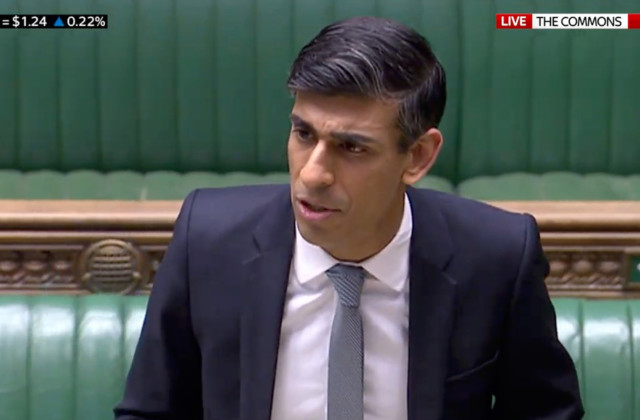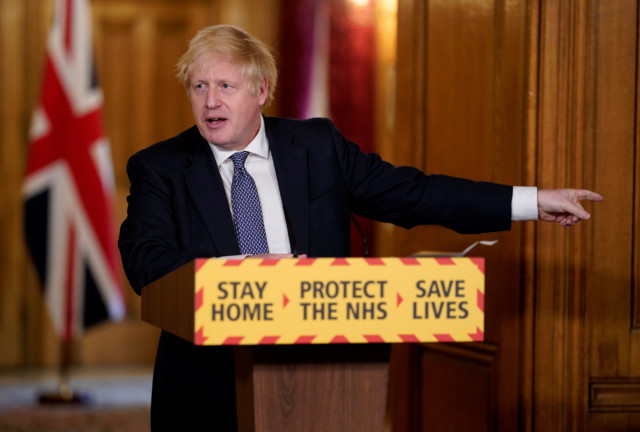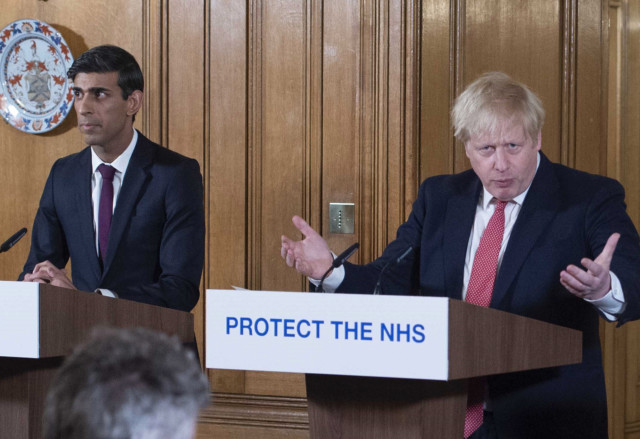RISHI Sunak yesterday braced Britain for a “significant recession”, but it has emerged hard-working frontline heroes won’t be paying for it.
After the coronavirus pandemic struck, national economic growth slumped by a massive 5.8 per cent in just March alone, it was revealed today.
The collapse is the largest ever monthly slump on record.
And the Chancellor warned it is also only the tip of the iceberg, as the figure takes in just one week of full lockdown, which started on March 23.
But HOAR can also reveal that Mr Sunak and PM Boris Johnson have already ruled out a pay freeze for public sector workers to balance the books.
Cuts to education and the NHS budgets, as well as their huge promised spending on upgrading the nation’s infrastructure have also been ruled out.
But tax rises do remain on the table to pay for the nation’s new eye-watering deficit that is now expected to leave the UK £300bn a year in the red.
A source close to the Chancellor said: “Our public services right now are doing heroes’ work. That’s not going to be forgotten in the future”.
“Rishi and the PM are also committed to the levelling up agenda and spreading opportunity.
“Spending in those areas, along with education, is also the best way to get the economy to grow again.”
But Treasury figures also last night refused to rule out ring-fencing anything else amid growing expectation the Chancellor will have to raise funds from somewhere else to pay down the nation’s borrowing.

One senior source added: “We’d be mad to start ruling out tax changes now. That’s a fools errand”.
The Tories’ election manifesto in December pledged not to raise income tax, national insurance or VAT.
But that promise last night looked in doubt.
A two year-long public sector wage freeze was one option proposed in an internal Treasury document that was leaked to the Daily Telegraph yesterday.
‘WE WON’T GO BACK TO THE WORLD OF AUSTERITY’
Income tax hikes and ending the triple lock on pensions to ensure they always go up by 2.5% a year were also proposed.
Ministers distanced themselves from the document yesterday, which they dubbed “speculative” and insisted had only been drawn up by officials.
Transport Secretary Grant Shapps echoed the PM’s declaration two weeks ago that another era of spending cuts is likely.
Mr Shapps insisted: “We are not going back to the world of austerity”.
Downing Street also signalled that state workers should not worry.
The PM’s spokesman said: “I’m obviously not in a position to write the Budget.
“On the specific point about the public sector, we acknowledge that those on the frontline are doing an incredible job and we’re determined to support them.”
The spokesman added: ““It’s far too early to speculate on these things.
“We’re facing a time of unprecedented economic uncertainty and we remain committed to the measures set out in the Budget.”
Overall, the UK economy contracted by 2% in the first three months of 2020.While services, construction and manufacturing all took a big hit, a few industries profited from a surge in demand from the crisis.
The pharmaceutical sector was up 20%, and paper products up 10%, probably from the huge initial demand in toilet roll.
Mr Sunak told the BBC: “A recession is defined technically as two quarters of decline in GDP.


“We’ve seen one here with only a few days of impact from the virus, so it is now very likely that the UK economy will face a significant recession this year and we are in the middle of that as we speak.”
A public sector pay freeze to help meet the cost of the coronavirus crisis would be “a deep and damaging betrayal”, a police leader has said.
Chairman of the Police Federation of England and Wales John Apter called any such move “morally bankrupt” and urged the Government to rethink any plans for “financially punishing our public sector workers”.









